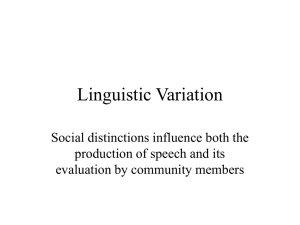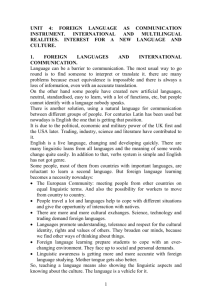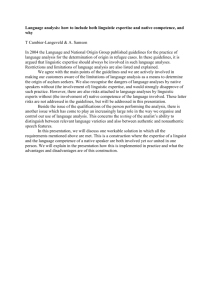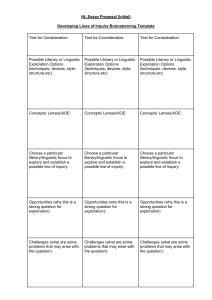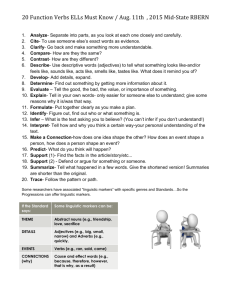9th Grade Curriculum Introducing Language Exploration
advertisement
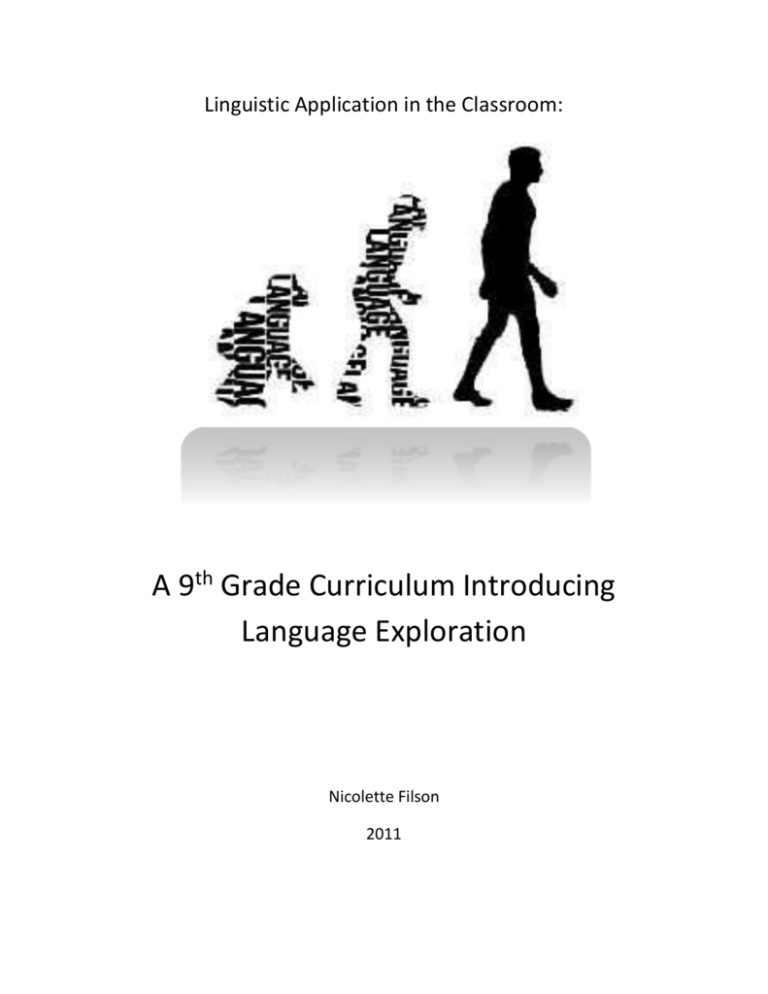
Linguistic Application in the Classroom: A 9th Grade Curriculum Introducing Language Exploration Nicolette Filson 2011 Introduction Overview: In this unit, students will study language in terms of how it has changed over time, why it has evolved, how this growth affects them, and the role of language on a personal level as far as language ideology and language’s relationship to identity and ethnicity. Students will be able to explore authentic language and consciously think about how language is used by themselves and others. Students will be exposed to many different language varieties and will be able to compare and contrast these dialects to Standard English. This unit encourages students to see language as a relevant part of their identity and life as it reflects their own culture and that of the society around them. Language can be a challenging aspect of the English education curriculum to teach; however, this material was designed particularly so teachers who may have minimal or no linguistic background can still be successful teaching this material. Each day of the curriculum is prefaced with basic information about the material for that day, the key concepts, and, if needed, the historical or social background of the topic. This allows teachers to confidently facilitate class discussions and lead activities. Another advantage of the curriculum is its use of students’ opinions and input as many of the concepts discussed are subjective. This challenges students to try to be the subject expert on such select topics as concepts can at least be investigated via opinion. Finally, worksheets in this material have answer keys in which teachers are able to see answers and ideas they should expect to see from their students. This will shape the teacher’s expectations and allow them to anticipate the most from students. This unit is spread over six days with each day ranging from 70 – 90 minutes for a total of 500 minutes of instructional time; however, each day is broken up into self-contained activities with approximated times of about 20 – 30 minutes so that, depending on time constraints or teacher preference, certain exercises can be omitted if need be. Though each day was designed to be taught in chronological order, this organization is a loose guideline and lessons can be taught instead in conjunction with the theme of other units. There are a variety of teaching styles suggested throughout the unit ranging from direct instruction to discovery learning; however, teachers should feel free to alter the mode of instruction based on the ability level of the class and teacher preference. This unit is intended to be easily adaptable to individual classrooms, personal teaching styles, and existing curriculum and should be used as such. The Benefits of Language Exploration and Awareness: Encouraging language exploration and linguistic awareness in the classroom first fortifies students’ descriptive language skills as well as helps them understand the grammatical conventions of academic language. They also begin to understand the relationship between identity and language which encourages them to be more aware and accepting of diversity, linguistic and cultural. Students are exposed to social and historical influences on language creating a deeper respect for the humanities and the interdisciplinary nature of language. Finally, students will come to see the overwhelming relevance of language in their lives and use this knowledge to master written and oral language to increase fluency. Goals of this Curriculum: 1. To develop an understanding of how language is shaped by factors such as identity, ethnicity, geographic location, age, etc., and become aware of those influences in their speech and the speech of others. 2. To reflect on personal language ideology and address the effects those beliefs can have on relationships with other people and social groups. 3. To develop an academic understanding of language change and understand how and why it took place in the past, is happening in the present, and will occur in the future. 4. To recognize the power of language in society and small social circles by identifying its ability to create unity with certain people while excluding others. 5. To explore the patterned and rule-governed system of all language varieties.


